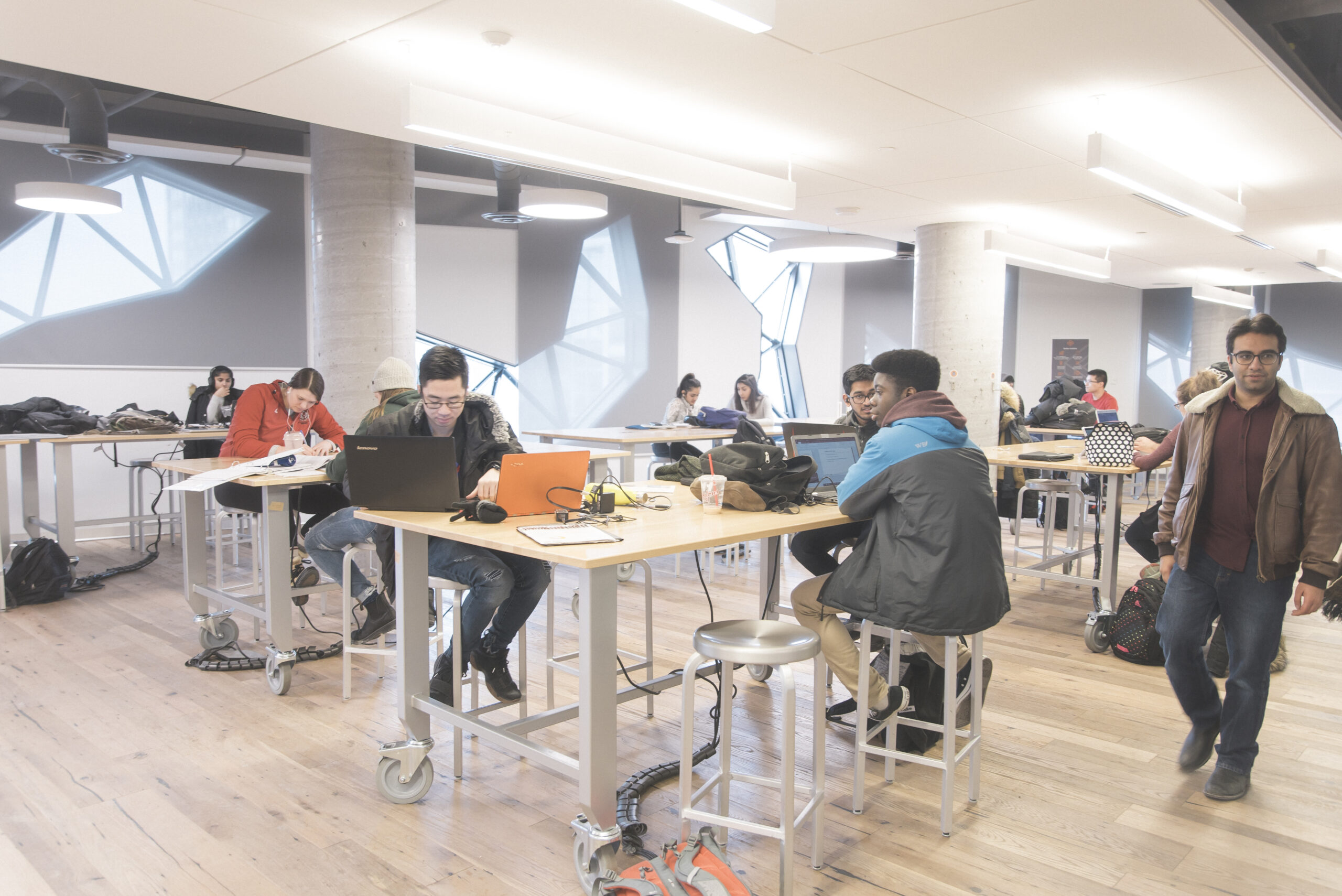Lassonde researchers present multidisciplinary findings

Five Lassonde professors presented their research in a special session at the 30th annual Canadian Conference on Electrical and Computer Engineering. The conference took place on April 30 in Windsor, Ontario.
Their focus was the emerging micro and bio electronic research, which is a unique multidisciplinary field of inquiry in Canada.
DNA sequencing, implantable medical devices and novel methods of heat transfer were just some of the topics of research presented by Lassonde professors.
Amir M. Sodagar, Hossein Kassiri, Sebastian Magierowski, Simone Pisana and Ebrahim Ghafar-Zadeh were five professors from the EECS department whose multidisciplinary research is making a significant impact on the future of human-centred design.
The session was organized by Lassonde professors Ebrahim Ghafar-Zadeh and Sebastian Magierowski.
Details on the research are below.
Interested in learning more and joining Lassonde for post-graduate study? Contact Stefanie Caputo at gpa@eecs.yorku.ca
Amir M. Sodagar spoke about a custom-made micro-fabricated device suitable for biomedical applications. The focus of this talk will be on the design and development of a lightweight compact multi-channel micro-electrocorticography (mECoG) system for extracellular neural recording. System-level function, design, and specifications of the system including the associated circuits, microelectrode array (MEA), packaging, and integration of the system will be elaborated.
Hossein Kassiri, presented novel implantable systems. Today, implantable medical devices play an increasingly important role in improving the quality of life for millions of people suffering from brain neurological disorders. The speaker will discuss circuit- and system-level design considerations and trade-offs that must be taken into account in the design of such systems in order to achieve high-resolution real-time brain electrophysiological activity monitoring, low-latency low-power digital signal processing, and highly-efficiency charge-balanced electrical stimulation.
Sebastian Magierowski spoke of the great advantage of highly integrated circuit chips for DNA sequencing applications. DNA sequencing is quickly evolving into mobile technology with a need for power-efficient compute services. This talk describes such a service in the form of a VLSI base caller chip for nanopore-based 3rd generation DNA sequencers.
Simone Pisana‘s talk focused on heat transport in electronic devices. High current operation is often desirable in electronic devices, as it affects a variety of essential aspects such as switching speed in transistors, sensitivity in sensors, and light output in light-emitting devices. however, can lead to premature device failure or the degradation of device performance, as the inherent increase in device operating temperature can degrade materials/junctions, increase leakage, or lower mobility. For emerging devices based on 2D materials such as graphene, there is an opportunity to impact the device performance at the early stages of device development.
Ebrahim Ghafar-Zadeh presented a talk on the design and implementation of a hybrid micro-fluidic/micro-electronic platform for high throughput cellular analysis. This platform consists of a micro-fluidic structure and a Complementary Metal Oxide Semiconductor (CMOS) sensing chip connected to a computer for data recording, display and further processing. The applicabilities of the proposed device were demonstrated and discussed for various applications including cancer cell analysis and bacteria growth monitoring.